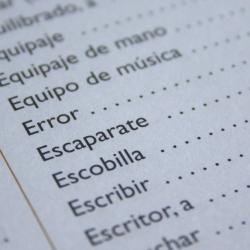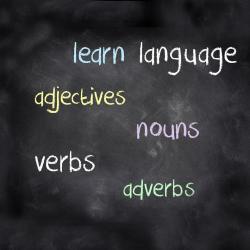The Best Methods for Mastering Vocabulary in a New Language
Learning a new language can be a gateway to new cultures, experiences, and opportunities. One of the most foundational elements of language acquisition is building a robust vocabulary. Words are the building blocks of communication, and mastering them is crucial to proficiency. Here are some of the best methods for effectively mastering vocabulary in any new language:
1. Use Spaced Repetition Systems (SRS)
Spaced repetition is a learning technique that involves reviewing vocabulary at increasing intervals. This method is grounded in the science of memory retention, helping to move information into long-term memory. Apps like Anki and Memrise use SRS to optimize the timing of reviews, ensuring that new words are revisited just before they are likely to be forgotten, thereby reinforcing memorization.
2. Leverage Flashcards
Flashcards remain one of the simplest yet highly effective tools for vocabulary learning. Digital flashcard platforms, such as Quizlet, allow for the easy creation and customization of cards, often incorporating audio, images, and example sentences to reinforce understanding. Flashcards facilitate active recall, which is more effective than passive study techniques.
3. Immerse Yourself
Immersion is one of the most powerful ways to build vocabulary quickly. Surround yourself with the language through movies, TV shows, music, podcasts, and books. This not only helps in learning new words in context but also aids in understanding pronunciation, slang, and idiomatic expressions. Platforms like Netflix or YouTube enable customizable subtitles, helping you learn in context.
4. Engage in Conversation
Language is inherently social, and real-world conversation is a natural and effective way to learn new vocabulary. Participate in language exchange meetups, join language clubs, or use online platforms like Tandem or HelloTalk. Engaging with native speakers forces you to employ new vocabulary actively and can give you instant feedback, thus reinforcing learning.
5. Practice Through Writing
Writing is an excellent method for reinforcing vocabulary. Keeping a journal in your new language, writing essays, or even sending messages to pen pals can provide a controlled environment to practice new words. This active production of language enhances recall and encourages the application of new vocabulary.
6. Create a Personal Dictionary
Maintaining a personal dictionary can help keep track of new words and phrases. Whenever you encounter an unfamiliar word, jot it down with its definition, pronunciation, and an example sentence. Reviewing this list regularly will help solidify your knowledge and provide a sense of achievement as it grows.
7. Use the Keyword Method
The keyword method involves associating the sound or meaning of a new word with a familiar word or image. This mnemonic device helps in creating mental connections, making recall easier. For example, if you are learning the Spanish word "casa" (house), you might visualize a "castle" as the keyword to trigger memory.
8. Play Language Games
Games can make learning a language fun and engaging. Language learning apps like Babbel and Duolingo incorporate gamified elements to boost motivation. Additionally, playing word games or puzzles in the target language, such as crosswords or Scrabble, can be both entertaining and educational.
9. Contextual Learning
Learning vocabulary in context aids in understanding the nuances of usage. Instead of memorizing isolated words, learn them as part of phrases, sentences, or conversations. This helps in grasping grammatical structures and in remembering words based on scenarios or topics.
10. Consistency and Patience
Finally, consistency is key to mastering vocabulary. Set realistic goals and dedicate daily time to studying. Language learning is a marathon, not a sprint. Celebrate small milestones, and remember that patience and perseverance are integral to success.
In conclusion, mastering vocabulary in a new language involves a multifaceted approach combining technology, immersion, and engagement. By tapping into these strategies, learners can enrich their vocabulary efficiently and enjoyably, paving the way toward fluency and a deeper connection with the language.






















